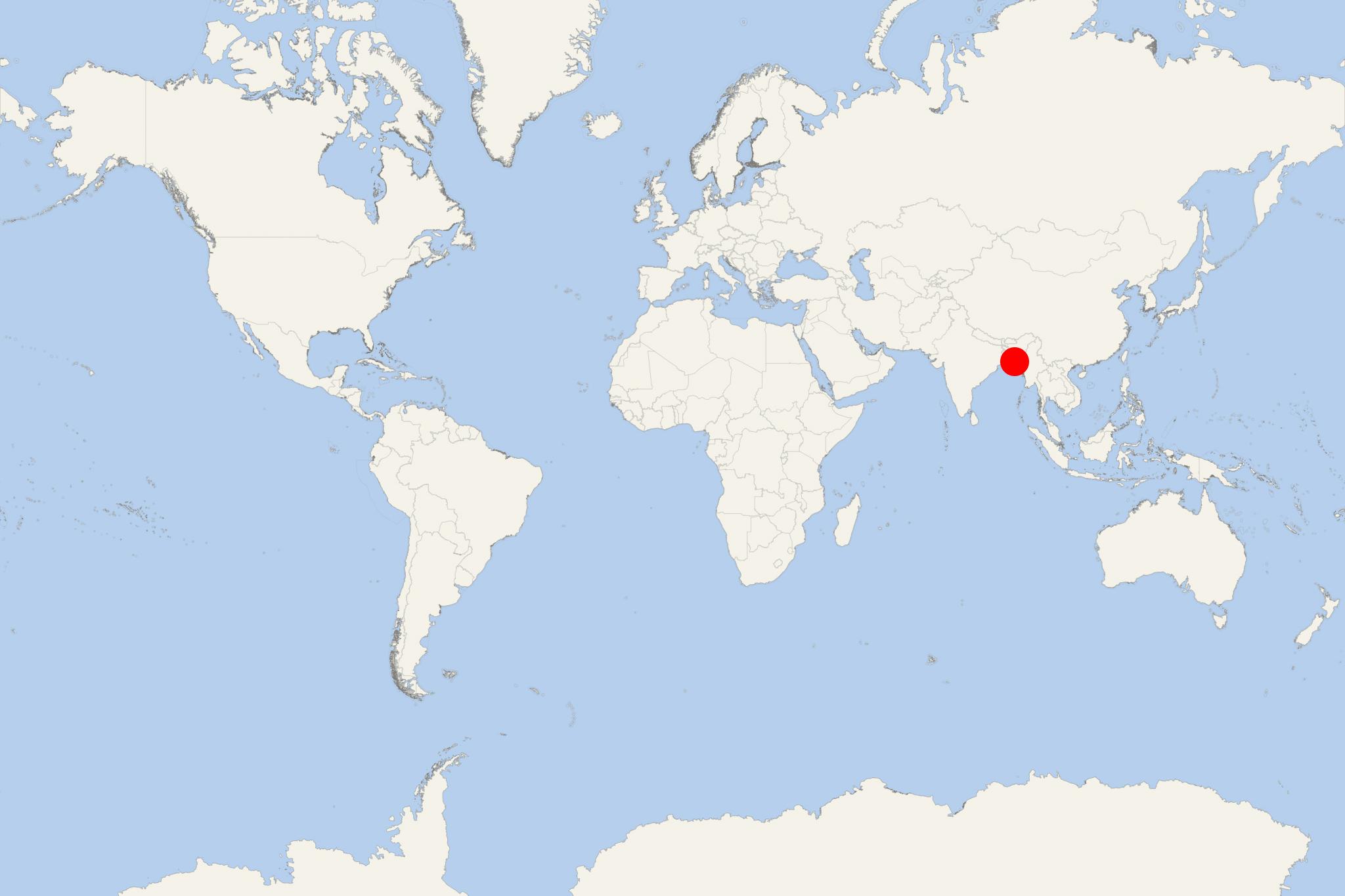Chittagong Ship Breaking Yard (Bangladesh)
Cruise Port schedule, live map, terminals, news
Chittagong Ship Breaking Yard is on the Bay of Bengal (northeastern Indian Ocean) and is currently ranked the world's second-largest shipbreaking (dismantling and recycling) facility - following Alang (India) and followed by Dagani (Pakistan) and Aliaga (Turkey). It is located in Bangladesh' Chittagong Province (Sitakunda Upazila region) and is part of Chittagong City's Faujdarhat neighborhood (approx 20 km / 12 mi northwest of the city).
The city has population around 2,6 million (country's second-largest - after the capital Dhaka) and is served by Port Chittagong (locode BDCGP). Most of the country's shipping (export and import) is handled at Port Chittagong.
The Chittagong Yard spreads along an 18 km (11 mi) flat beachfront area. It annually handles ~1/5th of the world's total scrap DWT-deadweight tonnage and accounts for ~1/2 of the Bangladesh-produced steel.
The Yard supports 200,000+ jobs (~50,000 directly employed and 150,000+ indirectly involved) and is infamous for its deplorable working conditions marked by lack of safety measures and training, protective equipment, medical facilities/healthcare services, environmental policies and laws, adequate waste management, pure drinking water, restrooms/toilets, as well as high mortality/injuries and the world's lowest labor salaries.
Statistics show that ~40% of the workers are aged 18-22, ~20% of the workforce are children (under 18), ~45% are illiterate. Most workers are contracted on a temporary/ship-by-ship basis. For the dismantling of one vessel are hired between 300-500 people. Most materials are recycled and the machinery sold/usually exported. Most of the Yard's scrapped steel is used for producing iron rods (for the country's construction industry) as well as exporting steel plates for shipbuilders to use on newbuild ships.
The Yard is also known as Fauzdarhat Ship Breaking Yard. Its history started with a stranded cargo ship that in 1960 run aground on the coast due to severe weather/cyclone. As refloating of the vessel was not possible, it remained beached for 5 years - until 1965, when the company Chittagong Steel Works Ltd (1956-founded) bought and scrapped the boat.
The commercial shipbreaking industry in Bangladesh officially started in 1969 and steadily grew thru the 1980s. In 1996, Chittagong was ranked the world's second-largest shipbreaking facility (after Alag) by annual DWT scrapped. Currently, the coastal area houses 150+ shipbreaker plots, of which 50-60 are operational the whole year-round. The shipbreaking here benefits mainly from the cheap and resilient labor force, and the flat beaches that are perfect for intentional grounding.
Despite offering the industry's lowest costs, Chittagong is not used for shipbreaking by some of the world's largest shipping companies - including APM-Maersk and Hapag-Lloyd. Still, some of the world's largest ships (supertankers, cargo carriers, container ships) are scrapped at Chittagong.
Cruise ships scrapped at Chittagong
Among the ocean liners and cruise ships scrapped at Chittagong are SS Southern Cross (1955-2003 as "OceanBreeze"/Imperial Majesty Cruises), Sunward (1966-2004 as "Empress"/NCL Norwegian Cruise Line), Freeport (1968-2012 as "Discovery Sun"/Discovery Cruise Line).
Note: Due to the Coronavirus crisis and IMO's new regulations (marine engine upgrades for using low-sulfur fuels and LNG), in 2020-2021 were scrapped 15 cruise liners - an unprecedented number in comparison to previous years, and even 5-year periods. In 2020, the average ship scrap metal (DWT-deadweight tonnage) prices in Alang rose to ~USD 400 per ton (from ~$200), in Aliaga - to ~USD 300 per ton (from ~$100). EU-flagged ships' scrap values were ~USD 100-200 per ton as these vessels require dismantling at EU-certified yards. Ship scrap prices in the USA were USD 80-90 per ton.
- Cruise Industry

Where Ships Go to Die
Shipbreaking (also called ship demolition) is the process of dismantling ships for scrap metal and recycling or disposal. Today the shipbreaking...
June 8, 2017 - show more news

 85°F
85°F 
 Mod. breeze
Mod. breeze